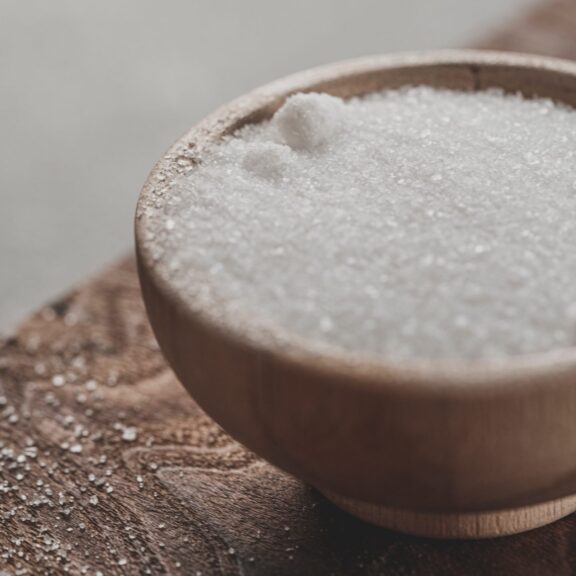Why appetite surges in midlife – and what to do about it
Have you noticed you have more trouble controlling your appetite since entering midlife? It’s a real problem for many women, and if you notice it – you are not alone!
This issue is very personal for us, as Stephanie really struggled with an an appetite surge as soon as she hit the 50 year mark.
As usual, we dove into the research and found out there is in fact a relationship between appetite and our changing hormones, but there is so much more to it than you might think.
So if you are curious as to why appetite can increase during and after menopause, and more importantly, which nutrition and lifestyle strategies can help you manage this frustrating problem, we’ve got you covered.
Read or watch below for our take:
It is important to note that when we talk about hormones, there are more than just the 3 main sex hormones you hear about (estrogen, progesterone and testosterone).
The command and control center for hormones is in your brain, where signals are received from all parts of the body to control everything from your stress response via the adrenal glands, to your blood sugar balance via the pancreas, to your thyroid hormone via the thyroid gland, and your sexual behavior and function via ovaries and adrenal glands.
In regards to appetite, hormones also communicate to either increase or decrease hunger depending on many different factors.
To explain why our appetite can go off the rails in midlife, it helps to discuss some of these key hormones and how they are affected.
Let’s start off with Ghrelin. In the simplest terms, ghrelin is the hormone that stimulates appetite. We call it our hunger hormone. Keep in mind we NEED ghrelin, or we would never have an appetite! Appetites are good – we want to feel hungry so we can fuel our bodies.
Ghrelin levels are on the rise between meals, and when they peak, it signals our brain that we need to eat. However, starting in peri-menopause, levels of this hunger-stimulating hormone increase quite a bit more than we would like, which is one reason why many women find themselves frequently hungry during this phase.
Then we have Leptin, which is the opposite of ghrelin. It’s the hormone that tells the brain to CURB the appetite after eating. It’s an important part of appetite suppression.
Leptin is made by our fat cells. It then travels through the bloodstream to the brain where it signals that you have had enough to eat. So as ghrelin levels fall, leptin levels rise.
Levels of leptin tend to reduce throughout peri- and postmenopause. Unfortunately. that means that it becomes harder for our bodies to sense fullness and stop eating.
In menopause, our hunger hormone increases and our fullness hormone decreases! Clearly one of the many reasons we may experience increased appetite.
We wanted to bring up something really important here in regards to restrictive diets, which make this whole scenario even worse. Low calorie diets not only cause our ghrelin levels to increase, they also cause a down regulation of leptin. This explains why hunger is also so rampant on very low calorie diets, so keep that in mind before going on a super restrictive diet
Then there is decreased estrogen. Like leptin, estrogen serves to dampen appetite. One form of estrogen, estradiol, helps regulate metabolism and body weight. But as we all know, estrogen declines in peri-menopause and menopause, which is another reason appetite may ramp up.
Cortisol is another player, which has been shown to increase slowly from age 40 onwards.
Elevated cortisol levels are of particular concern to menopausal and peri-menopausal women, as the combination of higher cortisol and lower estrogen can drive appetite even more.
This is also because stress itself (which increases cortisol) can drive the impulse to eat, and often, to make some fairly poor choices of foods (high-fat, high-sugar “comfort” foods).
With all that in mind, here are 5 tips to keep in mind when it comes to appetite:
1. HUNGER or HABIT
First tip is to ask the question – is this hunger? OR HABIT? Don’t assume. So often we mistake physical hunger for emotional hunger. You can read more about that here.
2. Prioritize Protein: Ensure enough protein at each meal
Many studies show that protein is the most satiating macronutrient vs carbs or fat. Another reason is that protein decreases levels of the “hunger hormone” ghrelin. Aim for at least 70 grams of protein spread through the day, and minimum 20 grams per meal.
3. Fit in FIBER
Fiber promotes fullness by slowing absorption of nutrients into our bloodstream. This is the reason that high fiber fruits and veggies do not impact our blood sugar the way refined carbs that are devoid of fiber do.
ALSO, volume of food impacts satiety – and fiber contributes to volume. Fiber works on stomach stretch receptors that sense when we have enough food in our stomach.
4. Lift up your LIFESTYLE:
Inadequate sleep messes with our hormones, in particular those involved with metabolism and hunger.
Studies show that individuals running on less than 6 hrs sleep report increased sense of overall hunger and food cravings. We have some great sleep tips in this video so take a peek!
5. Two promising compounds:
There is research on 2 compounds that help with appetite. Acetic acid is a chemical compound found most commonly in vinegar, which has been linked to regulating blood sugar and supporting digestion.
Then there’s EGCG, which is a compound found in green tea and to a lesser degree in apples and blackberries.
Matcha is a special form of powdered green tea leaves and is even higher in EGCG.
EGCG has been found to slow down gastric emptying. One study found that people who took EGCG felt more satisfied 90 minutes after eating than those who didn’t take it.
To get the full scoop on the “why does this happen” and “how do I fix it”, go HERE.
Looking for more info on how to make simple, meaningful changes to your diet? A great place to start is by following the guidelines in our PM Meal Mastery program. For less than the cost of a bag of groceries, you can have access to this amazing resource that provides a scientifically-backed nutrition plan for optimal health, energy, and confidence after menopause.

THE NOURISHING GURUS
Jane and Stephanie, creators of The Simply Nourished Solution™, are nutritionists who help women over 50 go from overweight, frustrated, and inflamed to lighter and healthier so they can be more active, feel good in their bodies, and live the second half of life with energy and confidence. Their 3-pronged approach, which can fit into any lifestyle, encompasses not only wholesome energizing foods but powerful habit and mindset shifts.
CATEGORIES
What’s blocking your weight loss success?

You can still lose weight after 50 - even if you’ve been trying your whole life! Find out what’s standing between you and the healthy weight, energy and freedom you’re looking for.
Supported weight loss for women over 50
If you’re struggling to nourish yourself after menopause, our Simply Nourished Solution™ Signature Weight Loss Program offers the tools, strategies and shifts you need to stop yo-yo dieting, permanently lose weight, and feel better than ever in your 50’s, 60’s and beyond.


